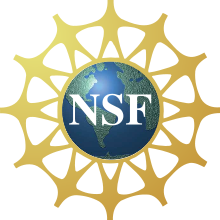News
Faculty Win $750K NSF Grant for Sustainability Research
August 2, 2019
New York Institute of Technology will use a $747,000 grant from the U.S. National Science Foundation (NSF) to establish a research coordination network (RCN) that will study various aspects of the food, energy, and water (FEW) nexus for sustainable and resilient urban development. The project, led by Principal Investigator (PI) Ziqian (Cecilia) Dong, Ph.D., associate professor in NYIT College of Engineering and Computing Sciences, will allow researchers at NYIT and other prestigious universities and organizations to collaborate on this pressing topic.
Using a “city-as-lab” model, the grant will support in-depth study of New York City and Phoenix, Ariz. “New York City is a natural subject for study because it collects and shares valuable data, and its agencies have long engaged with experts to drive decision-making,” says Dong. Phoenix’s FEW challenges, meanwhile, present an enlightening climatic contrast to New York.
The RCN grew from prior NSF-funded NYIT workshops in 2014 and 2015 led by Nada Anid, Ph.D., vice president of Strategic Communications and External Affairs, and in 2017 and 2018 led by Dong, bringing experts from a range of backgrounds to study urban resilience in the face of increased flooding and other extreme weather conditions. “This group will collaborate to identify societal and policy barriers to FEW resource conservation and sustainability, and address knowledge gaps and research questions posed by academic, government, and business stakeholders,” said Dong.
Project co-PIs come from NYIT (Associate Professor of Urban and Regional Design Jeffrey Raven), CUNY’s Building Performance Lab at City College (Executive Director Michael Bobker), and New York University (Associate Professor of Civil and Urban Engineering Masoud Ghandehari, Ph.D.). Researchers come from several universities including Georgia Institute of Technology, Illinois Institute of Technology, Louisiana State University, Rochester Institute of Technology, Stanford University, Texas A&M, and University of Michigan. Researchers from Brookhaven National Laboratory, Oak Ridge National Laboratory, and the National Center for Atmospheric Research are participating as well.
A long-range expectation of the RCN is to engage junior scholars and students and mentor them to become global sustainability scholars. Each year during the project, workshops will engage stakeholders and the academic community to identify challenges and co-develop knowledge and solutions. Students will engage with stakeholders to gain a solid grounding in FEW research, engage and collaborate on data curation, visualization, field experiences, and analysis for evidence-based decision-making.
Babak D. Beheshti, Ph.D., dean of the College of Engineering and Computing Sciences, said, “This network will allow researchers to reach a wider audience and identify urban FEW problems around the world. Reaching the people who matter—policymakers and the public—is an essential part of preparing cities for foreseeable challenges.”



_Thumb.jpg)


